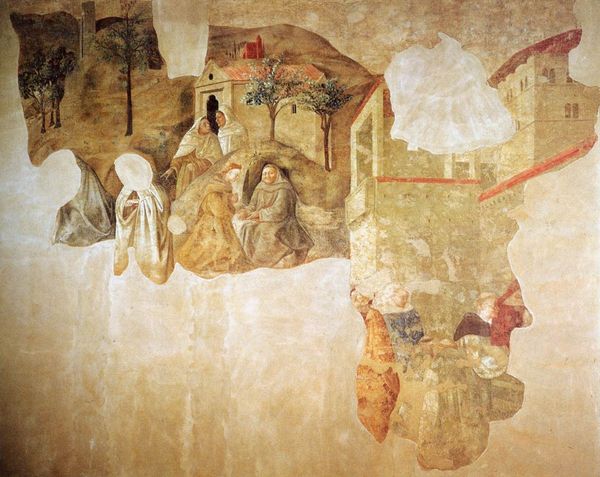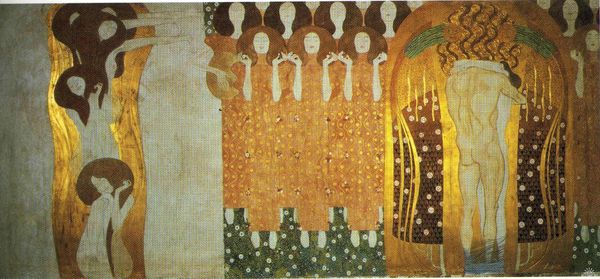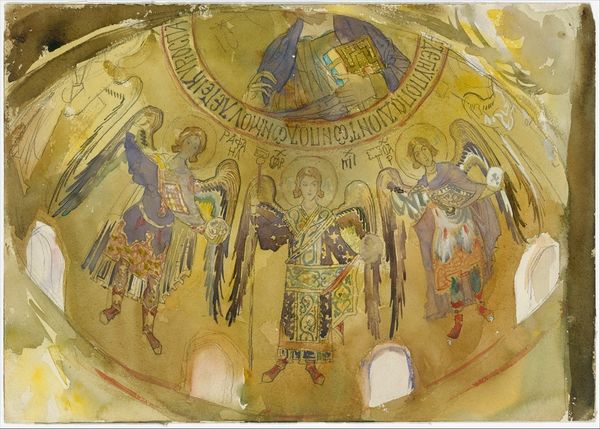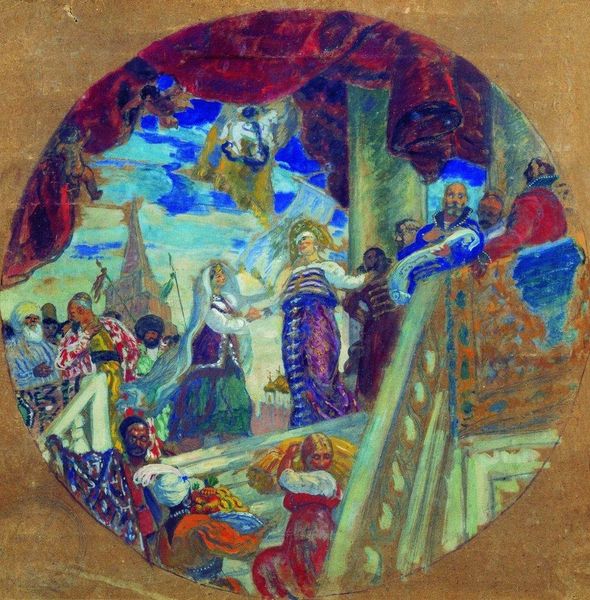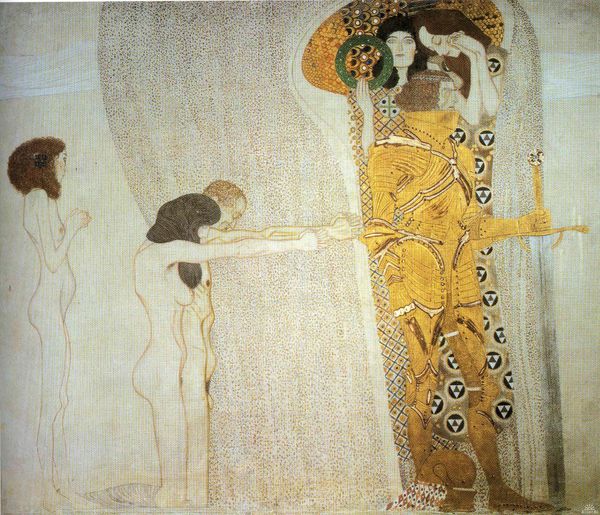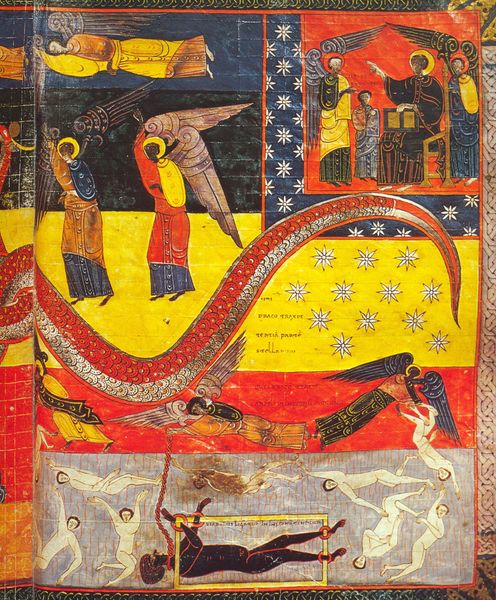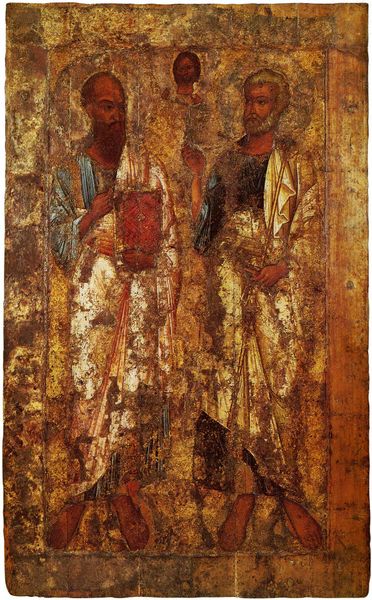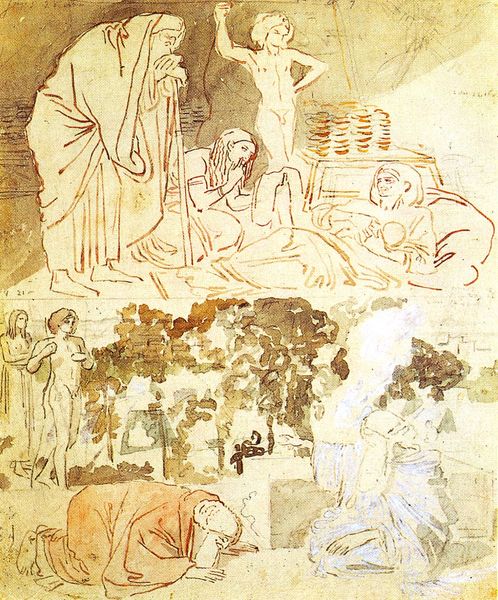
Pitsa Panel, Corinthia, Greece 540 BC
0:00
0:00
ancientgreekpaintingandsculpture
National Archaeological Museum, Athens, Greece
tempera, painting
#
portrait
#
tempera
#
painting
#
greek-and-roman-art
#
figuration
#
ancient-mediterranean
Copyright: Public domain
This is a painted wooden plaque from Pitsa in Corinthia, Greece, dating back to around 540-530 BC. The figures in the panel are defined by strong contour lines and flat areas of colour. The composition is structured around a series of figures arranged in profile, their forms rendered with remarkable economy. Note how the palette is limited to white, yellow, red, and black, yet the artist achieves a striking contrast. These colours are not just decorative; they carry symbolic weight, particularly the use of red, which in ancient Greek art often signifies vitality. The plaque serves as a semiotic system, communicating cultural and religious values through visual signs. Linear forms and restricted colours reflect a broader artistic trend of the period, where symbolism and convention often took precedence over naturalistic representation. This stylized approach invites us to consider how ancient Greek art used form to convey meaning.
Comments
No comments
Be the first to comment and join the conversation on the ultimate creative platform.

